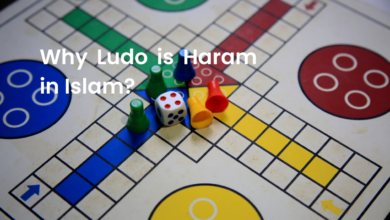
Islamism Kya Hai?
Islamism is a political ideology that advocates for the implementation of Islamic principles and laws in the political, legal, and social aspects of society, often with the aim of establishing an Islamic state.

Introduction
“Islamism,” often referred to as “Islami Nazariya,” is a multifaceted and complex political and ideological movement within the Muslim world. It is essential to distinguish between Islam as a religion and Islamism as a political ideology. In this article, we will delve into the meaning of Islamism, its history, key principles, and its various interpretations and manifestations.
Defining Islamism
Islamism, or Islami Nazariya, is a political ideology that seeks to establish Islamic principles and laws as the basis of a society’s political, legal, and social structure. It advocates for the establishment of an Islamic state, often governed by Sharia law, which is a system of Islamic jurisprudence. However, it’s important to recognize that Islamism is not a monolithic or uniform ideology, and its interpretations can vary significantly across different groups, cultures, and historical contexts.
Also check.
- What is Haram?
- Who is the Current Caliph of Islam?
- What Foods are Forbidden in Islam?
- When was Islam Founded?
- What is the Holy Book of Islam?
Historical Context
The roots of contemporary Islamism can be traced back to the 18th and 19th centuries when many Muslim-majority societies were undergoing profound changes due to colonization, modernization, and the spread of Western ideologies. This period marked the emergence of reformist movements like Wahhabism in Arabia and the Deobandi movement in the Indian subcontinent. These movements sought to return to a purer and more orthodox form of Islam as a response to perceived moral decline and Western influence.
Key Principles of Islamism
- Islamic Governance: One of the fundamental principles of Islamism is the establishment of an Islamic state that operates in accordance with Islamic law (Sharia). However, the specific interpretation of Sharia can vary widely among different Islamist groups.
- The Unity of Religion and State: Islamists argue for the inseparability of religion and politics. They believe that the state’s policies and laws should be in harmony with Islamic principles.
- Moral and Social Order: Islamism often emphasizes the importance of moral values, modesty, and social justice in society. These values should be upheld and enforced through the state’s legal system.
- Resistance to Western Influence: Many Islamist groups perceive the influence of Western culture and values as a threat to Islamic identity and seek to resist or counteract this influence.
Manifestations of Islamism
Islamism exists in various forms and has produced a wide range of political and militant groups. Some notable manifestations include:
- Political Islam: These are non-violent Islamist movements that participate in politics and elections. Prominent examples include the Muslim Brotherhood in Egypt and the Justice and Development Party (AKP) in Turkey.
- Salafism: Salafism is a conservative and puritanical interpretation of Islam that seeks to emulate the practices of the Prophet Muhammad’s companions. Some Salafist groups have engaged in militant activities.
- Jihadist Movements: These are extremist groups that use violence and terrorism to achieve their Islamist objectives. Al-Qaeda and ISIS are well-known jihadist organizations.
- Hizbullah: This is a Shiite Islamist political and militant organization based in Lebanon. It is distinct from Sunni Islamist movements and has its own geopolitical agenda.
Conclusion
Islamism is a complex and diverse political ideology with various interpretations and manifestations. It is essential to understand that not all Muslims identify with or support Islamist movements. Many Muslims practice their faith in a non-political, non-violent manner and do not share the same objectives as Islamist groups.
While some Islamists advocate for political change through peaceful means, others resort to violence and terrorism. The global conversation surrounding Islamism should be approached with nuance and a recognition of the wide spectrum of beliefs and actions within this ideology. To address the challenges posed by Islamism, policymakers and scholars must engage in a thoughtful and informed dialogue that respects the diversity and complexity of the Muslim world.

FAQs
What is Islamism (Islami Nazariya)?
Islamism is a political ideology that advocates for the implementation of Islamic principles and laws in the political, legal, and social aspects of society, often with the aim of establishing an Islamic state.
Is Islamism the same as Islam?
No, Islamism is a political ideology, whereas Islam is a religion. Islamism represents a particular interpretation of Islam that emphasizes its political and social dimensions.
What are the key principles of Islamism?
Key principles of Islamism include the establishment of an Islamic state governed by Sharia law, the unity of religion and state, the promotion of moral and social values, and resistance to Western cultural and political influence.
Is Islamism a monolithic ideology?
No, Islamism is not a monolithic ideology. There are various interpretations and manifestations of Islamism, and it can vary significantly among different groups, cultures, and historical contexts.
Are all Islamists involved in violence and terrorism?
No, not all Islamists engage in violence or terrorism. While some Islamist groups resort to violence, others pursue their objectives through peaceful means, such as political participation and social activism.
What is the historical context of Islamism?
The roots of contemporary Islamism can be traced back to the 18th and 19th centuries when many Muslim-majority societies were undergoing profound changes due to colonization, modernization, and the spread of Western ideologies.
Can Islamism coexist with democracy?
The compatibility of Islamism with democracy is a subject of debate. Some Islamist groups participate in democratic processes, while others advocate for an Islamic state that may not align with Western democratic principles.




